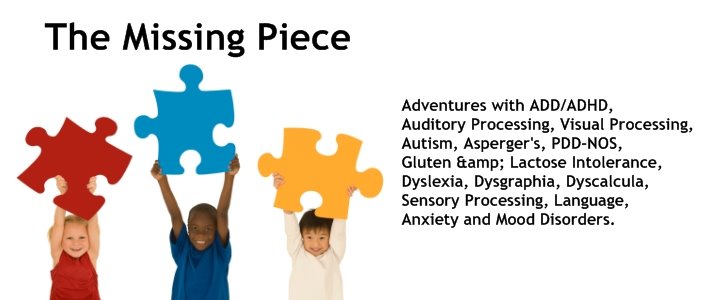 Thumb sucking should be considered
normal under the age of 4. It becomes a concern once the child is 6-7 years old
because secondary teeth are starting to erupt and thumb sucking can change the
shape of your child’s mouth, resulting in crooked teeth or an overbite.
Thumb sucking should be considered
normal under the age of 4. It becomes a concern once the child is 6-7 years old
because secondary teeth are starting to erupt and thumb sucking can change the
shape of your child’s mouth, resulting in crooked teeth or an overbite.
Nursing provides many ways in which
the mouth and brain can mature and gain skill for eating, swallowing, speaking,
and emotional bonding. However, sucking on a pacifier or thumb is a different
action than sucking on a nipple, using different muscles and having a different
effect on the development of the palate. Non-nutritive sucking (i.e. sucking
but not feeding) tends to lead to a high, narrow palate. This in turn can lead
to several problems such as crooked teeth, mouth breathing, speech development,
and recurrent ear infections.
 The anterior, posterior, sphenoidal and mastoid fontanelles are
membrane type gaps formed at the corners of the parietal bones of the skull. Described as small springs, or
fountains, the fontanelles fluctuate or move with changes in intracranial
pressure (pressure to the skull) and allow for cranial molding during the birth
process.
The anterior, posterior, sphenoidal and mastoid fontanelles are
membrane type gaps formed at the corners of the parietal bones of the skull. Described as small springs, or
fountains, the fontanelles fluctuate or move with changes in intracranial
pressure (pressure to the skull) and allow for cranial molding during the birth
process.
The temporal and sphenoid each
consist of three membrane segments,
which will continue to develop
and unite during the first year of
life. Excessive force applied to these structures during pregnancy, labor or
assisted delivery (i.e., forceps, vacuum extraction and/or the Ritgen maneuver)
may distort the membranous segments and alter the function of the associated
soft tissue. Thumb sucking action acts like a pump on the cranial bones and
allows them to shift into a more comfortable relationship.
Symptoms may go unnoticed until the
infant exhibits any number of affects, one of which may be chronic otitis media or chronic ear
infection. This may result in persistent
retraction and Eustachian tube patency which is
the opposite of blockage, where the Eustachian tube remains excessively open
for a prolonged period.
If the (tensor vali palatine) muscle
becomes hypotonic, as in the case of glue ear, there will be no counter balance
for the other side (levator veli palatine) and the patient will eventually
demonstrate a high dental arch (an excessive elevation of the palate) just
below the sphenoid. The patient will have difficulty getting the tongue flat
against the hard palate, which will result in abnormal breathing, swallowing
and speech patterns. The patient will habitually suck his thumb to enhance his
ability to swallow and nose breath.
 A balancing of the occiput will result
in a reciprocal change in the position of the cranial plates that articulate
with the occiput, especially the parietals, sphenoid and temporal plates.
Seeking care from a chiropractor or craniosacral therapist could result in the
subtle movement which is usually enough to restore normal motion to the plates.
When this occurs, the muscles that attach to those cranial plates will be
affected and a change will occur in their state of tonicity.
A balancing of the occiput will result
in a reciprocal change in the position of the cranial plates that articulate
with the occiput, especially the parietals, sphenoid and temporal plates.
Seeking care from a chiropractor or craniosacral therapist could result in the
subtle movement which is usually enough to restore normal motion to the plates.
When this occurs, the muscles that attach to those cranial plates will be
affected and a change will occur in their state of tonicity.
Continuous thumb sucking may result in
movement of all related musculature and cranial structures. Restoring movement
to these structures by thumb sucking enhances the flow of cerebral spinal fluid
and nutrient exchange to the central nervous system. Therefore reported mouth
breathing and thumb sucking could indicate that the tensor vali palatine muscle
is in a hypotonic state and the levator veli palatine muscle is in a hypertonic
state.
Many parents of children with learning
struggles have found success with craniosacral therapy.
A note about head banging
From a structural
perspective, head banging, head rolling, thumb sucking, and other repetitive
behaviors may be indicative of cranial subluxations either causing or
resulting from meningeal stress. These subluxations/meningeal stresses are
often the result of neurological damage caused by pre-natal or birth trauma,
accidents, chemical stress, or emotional stress. Anger and other extreme
emotions tighten the meningeal system and increase brain pressure;
consequently, head banging is sometimes associated with tantrums.
Repetitive
rocking appears to be an attempt to release pressure on the brain and nervous
system
Source: ICA Cranias I by Dr. Carol J.
Phillips

No comments:
Post a Comment